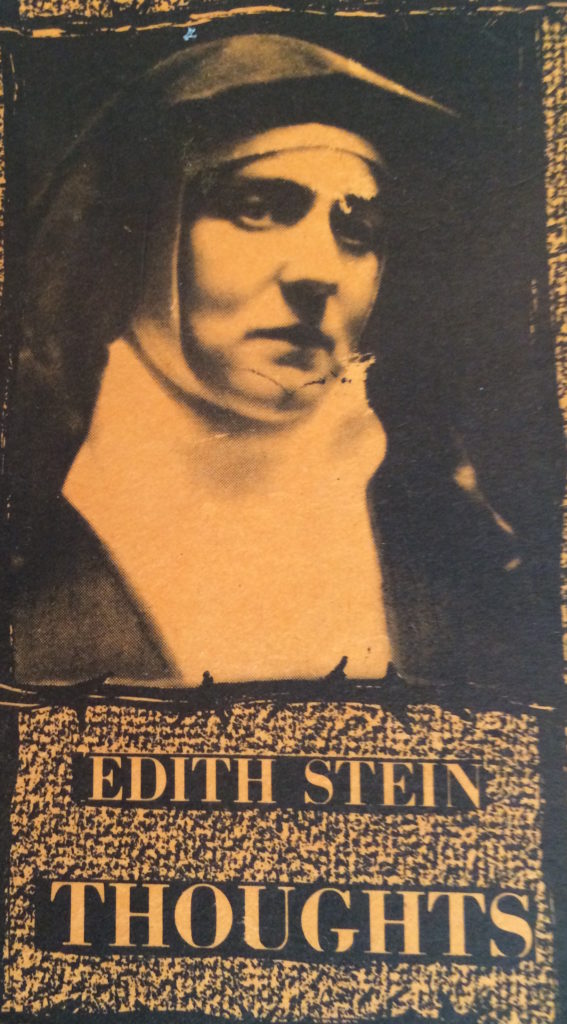
Translated from Italian and published
by Carmel of Maria Regina, Eugene OR
According to The Discalced Carmelite Proper Offices Supplement (2012), “Edith Stein was born of a Jewish family at Breslau on October 12, 1891. Through her passionate study of philosophy she searched after the truth and found it in reading the autobiography of Saint Teresa of Jesus. In 1922 she was baptised Catholic and in 1933 she entered the Carmel of Cologne where she took the name of Teresa Benedicta of the Cross. She was gassed and cremated at Auschwitz on August 9, 1942 during the Nazi persecution and died a martyr for the Christian faith after having offered her holocaust for the people of Israel” (157).
Editor’s note: In honor of yesterday’s Feast Day, here are some selected quotes from a booklet of Edith Stein’s ‘Thoughts’. If you haven’t yet read yesterday’s post by Father Robert Barcelos, ‘holiness means being whole,’ make sure you click on it below.
11. Divine spirit, divine life, divine love means this: he who does the will of God, knows God and loves Him. In fact, at the moment in which we do what God asks, with interior dedication, divine life becomes our life, God is found within ourselves. (Letter 21)
12. The more a person lives recollected in the interior of his soul, the stronger is that radiation which he sheds around him and which draws other souls into his circle. (Letter 21)
14. We have to learn to see others carry the cross and not be able to remove it from them. It is more difficult than to carry our own, but we cannot avoid it. (Letter 45)
20. God leads each one by a particular way; one person arrives more easily and sooner at the goal than another. What we can do, in comparison with what we are given, is always little. But the little we must do: that is, we must pray insistently so that when the way does happen to be indicated, we will be able to follow the grace without resisting. (Letter 56)
114. To belong wholly to God, to give oneself to Him, to His service, for love, this is the vocation, not only of all the elect but of every Christian; whether consecrated or not, man or woman. Everyone is called to follow Christ, and the more each one advances along the way, the more like Christ each one becomes. And since Christ personifies the ideal of human perfection free from every defect and one-sidedness, rich with characteristic traits be they masculine or feminine, free from every earthly limitation, His faithful followers rise ever higher above the confines of nature. (Woman 98)
136. In aridity and emptiness the soul becomes humble. Former pride disappears when a man no longer finds anything that might cause him to look down on others. (Science of the Cross 76)
155. The cross serves as a walking-stick to speed one’s march toward the summit. (Science of the Cross 141)
159. Contemplation is perceived more frequently in the will under the form of love, than in the intellect under the form of knowledge. (Science of the Cross 156)
The desire of our hearts and prayers rise to God for the salvation of all. For those who are called, whether they be Jews or Greeks, we preach Christ Crucified, a scandal to the Jews and foolishness to the pagans. But for those who are called, we preach Christ the power of God and the Wisdom of God (Divine Office Supplement 159)
